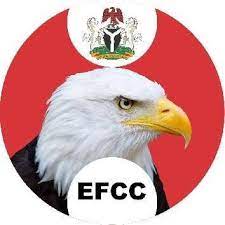The Economic and Financial Crimes Commission (EFCC) has called for the review of laws stalling the prosecution of suspects.
The commission, which said it would function better if the laws were reviewed, listed setbacks such as trial within trial, frivolous filling of applications and multiple defendants and counsels as things that frustrate justice against financial crime offenders in the country.
Speaking on the “Challenges of Prosecuting Economic and Financial Crimes” at a workshop for journalists on “Effective Reporting of Economic and Financial Crimes”, in Uyo at the weekend, DCE T. N. Ndifon, Head, Legal and Prosecution Department, Uyo Zonal Command, EFCC, cited the elevation or transfer of judges and delays in securing fiat to prosecute certain cases, among others as challenges it encounters in court.
In his opening remarks at the workshop, EFCC Zonal Commander, Uyo, Assistant Commander, Bawa Hamidu Saidu decried the rising cases of real estate and internet crime, and assured that the commission was working to eliminate the problem.
- Another victim accuses Plateau doctor of removing his kidney
- Auditor-General’s absence stalls audit of MDAs for 3yrs
Bawa urged the media to focus its search light on these areas to tackle the sharp practices, adding that only the collective fight against financial and economic crime by all Nigerians will help to nip the situation in the bud.
“The rising incidences of real estate and internet related cases have become worrisome. The real estate sector has been identified as a strong money laundering practice in Nigeria,” he said.
The zonal commander mentioned that the commission has both the backing of the law and qualified personnel to tackle financial and economic crimes in the country, adding that its efforts have so far helped reduce cybercrime which is the third highest in the world.
He revealed that some group of persons have in the past impersonated EFCC officials to defraud unsuspecting members of the public of their money, and cautioned that people should be wary of such ‘EFCC officials’ trying to extort money from them.
He denied that EFCC officials demand money from members of the public from whatever guise and urged such persons to verify from their office the identity of such officials so as not to be deceived, adding that bail in the EFCC is free.

 Join Daily Trust WhatsApp Community For Quick Access To News and Happenings Around You.
Join Daily Trust WhatsApp Community For Quick Access To News and Happenings Around You.


